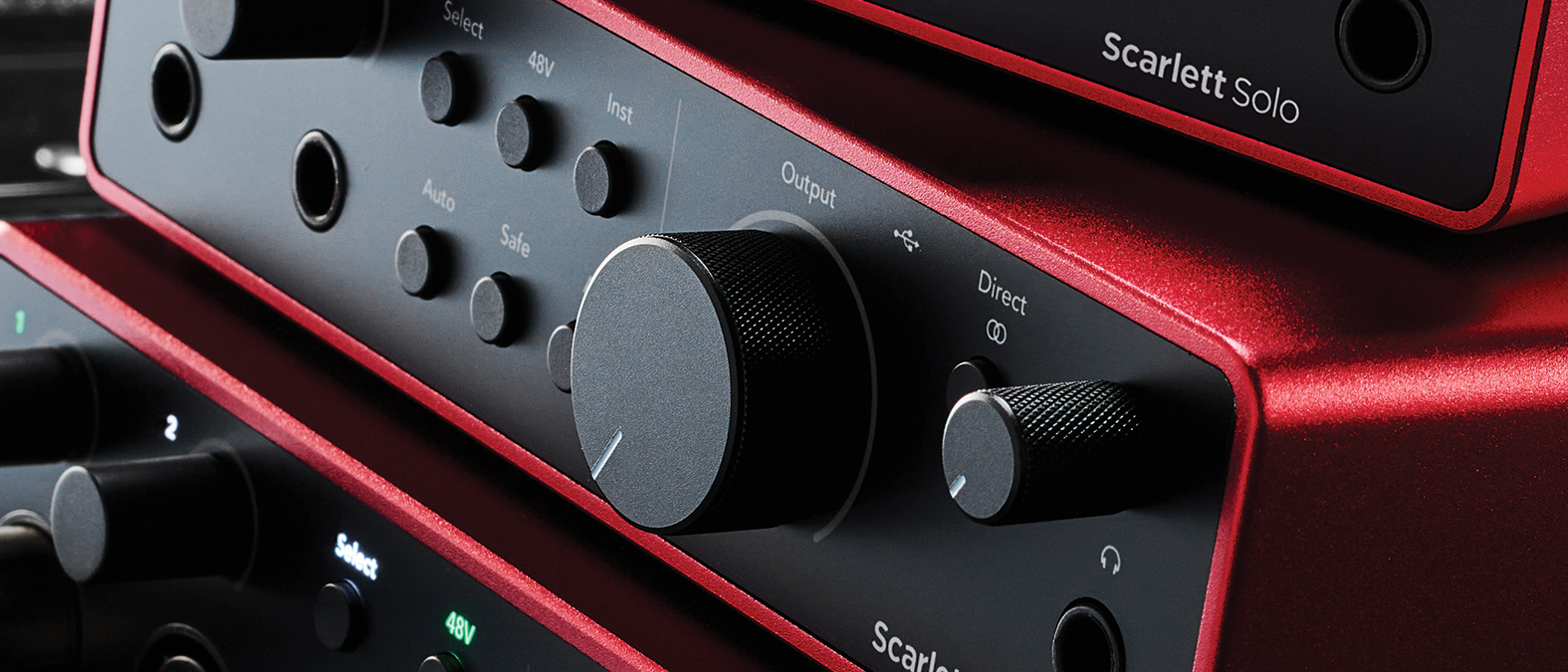MusicRadar Verdict
The latest versions of this very popular range show there’s always room for development, and the new features particularly in the 2i2 and 4i4 will help improve your productivity and recordings
Pros
- +
Up to 24-bit / 192kHz operation on all 3 interfaces
- +
Very handy auto gain and clip safe options on 2i2 and 4i4
- +
Improved Air enhancer feature
- +
Better RedNet convertors
- +
Slicker front panel with soft button selectors
Cons
- -
Best new features are reserved for 2i2 and 4i4
MusicRadar's got your back
Focusrite Scarlett 4th Gen series: What is it?
Focusrite’s long-established Scarlett USB audio interfaces are available in many shapes and sizes, offering everything from simple 2-in/2-out to the full-on multi-channel 18i20.
The process of moving to the 4th generation devices is now underway and for review we have the new Solo, 2i2 and 4i4. These are direct replacements for their respective 3rd Gen devices.
The Solo includes 2 inputs (1 mic XLR and 1 line/instrument jack) and 2 outputs, and the 2i2 is also 2 I/O but with 2 mic preamps (2 XLR and 2 line/instrument connectors). The 4i4 has 4 inputs (2 mic XLR and 2 line/instrument), 4 outputs and MIDI in/out. All 3 have a single headphone output with dedicated level control (this is an upgrade for the Solo) and all offer up to 24-bit / 192kHz operation.
USB connection is via USB-C but is compatible with regular USB 2.0, and the 2i2 and 4i4 include an extra USB-C power socket.
All three Focusrite audio interfaces can be USB powered, but the 4i4 in particular needs a hefty 1.5A supply and thus includes an external PSU for those not using a USB-C equipped computer.
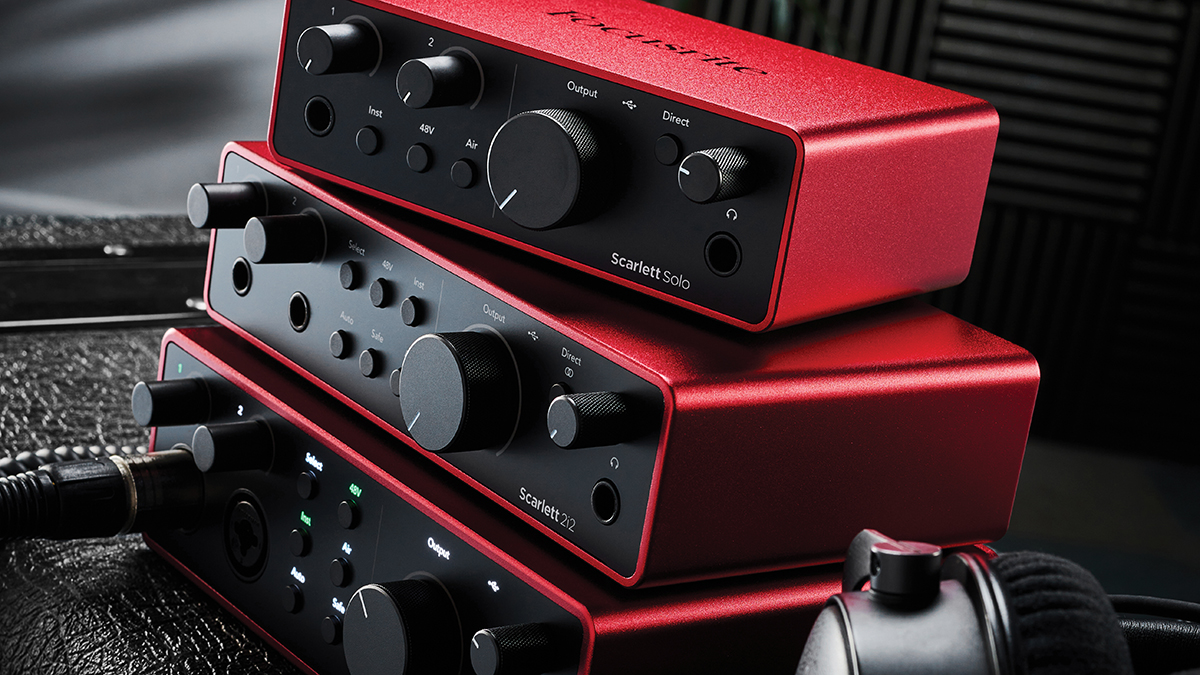
Focusrite Scarlett 4th Gen series: Performance and verdict
The interfaces retain the same red metal casework and functional shape of the 3rd gen, although the case sizes and feature layouts have been modified somewhat. For example, the 2i2 and 4i4 both have channel selectors and shared buttons, with encoder-style gain knobs all of which feel slicker in use.
For minimal latency input monitoring the Solo includes a single function Direct button, and the 2i2 is a dual-function Direct button, with mono and panned options. The 4i4 has no hardware option but has 3 software cue mixes, accessible via Focusrite Control 2.
Want all the hottest music and gear news, reviews, deals, features and more, direct to your inbox? Sign up here.
The 4th gen Scarletts include technical improvements across all interfaces with 120dB dynamic range RedNet A/D converters, a new improved headphone amp, better implementation of knob halo indicators with output metering for the 2i2 and 4i4, and a reworked Air mode.
This now has two stages of enhancement - presence or presence with harmonic drive. We found the latter was ideal for livening up vanilla DI electric guitar or bass. The only downside is the Solo unit can only apply Air to the mic input and not the instrument input.
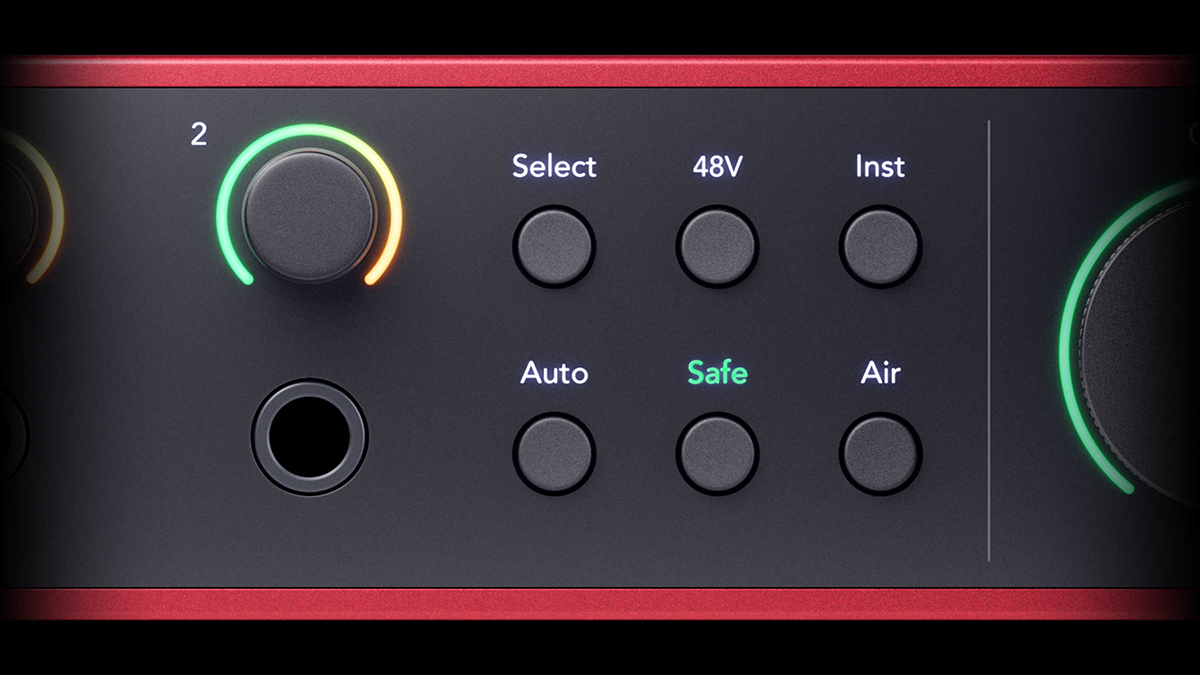
Further new features are specific to the 2i2 and 4i4. The reworked preamps have an impressive 69dB of gain, which we found ideal for low-output mics such as ribbons. The 2i2 and 4i4 preamps also include optional auto gain and clip safe.
The former monitors the input for 10 seconds, setting the gain accordingly, and also includes a dual channel option. The latter applies real-time changes to the gain setting to avoid clipping.
We found both worked well, although the clip safe option works best with properly set initial gain levels, as it has the potential to make big gain changes in real-time.
Although they look similar, the new Scarletts are slicker audio interfaces with better specs and more options. We're inevitably drawn towards the great new features on the 2i2 and 4i4. Nevertheless, all three are worthy upgrades and highly recommended.
MusicRadar verdict: The latest versions of this very popular range show there’s always room for development, and the new features particularly in the 2i2 and 4i4 will help improve your productivity and recordings.
Focusrite Scarlett 4th Gen series: Specifications
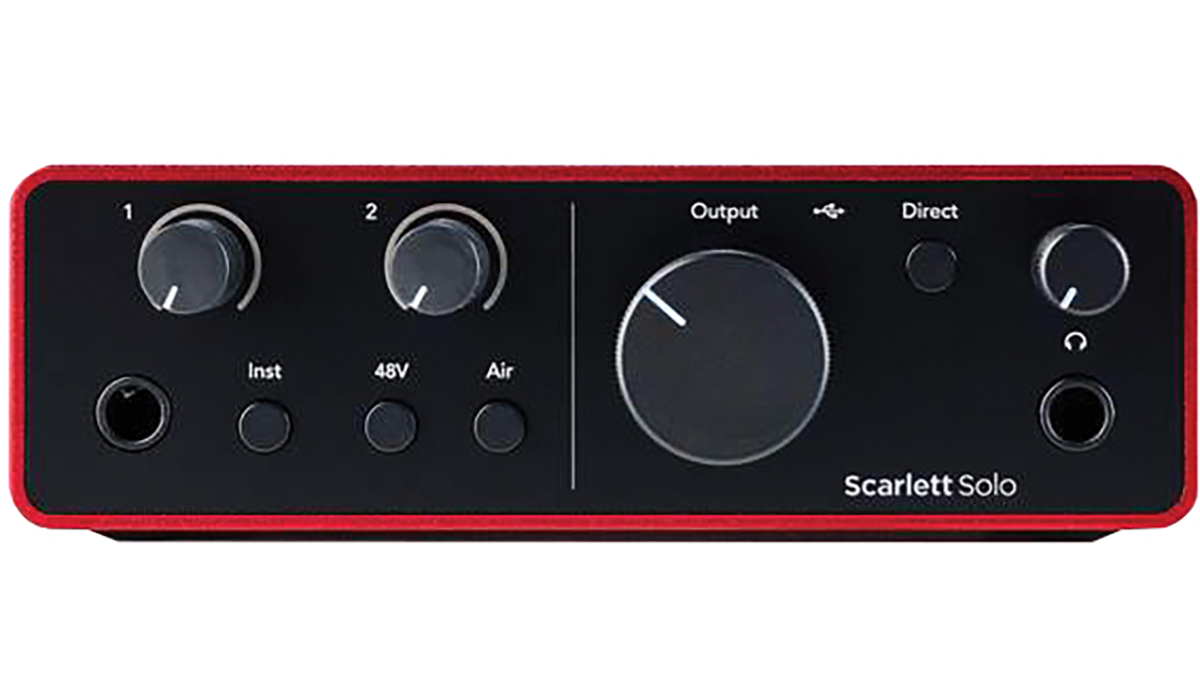
Scarlett Solo 4th Gen
- Sample rate and resolution: up to 24-bit / 192kHz
- Inputs connections: 1 jack, 1 XLR
- Output connections: 2 jack
- Power: USB-C
- Size: 142(w) x 45(h) x 96(d)
- Weight: Solo: 365g
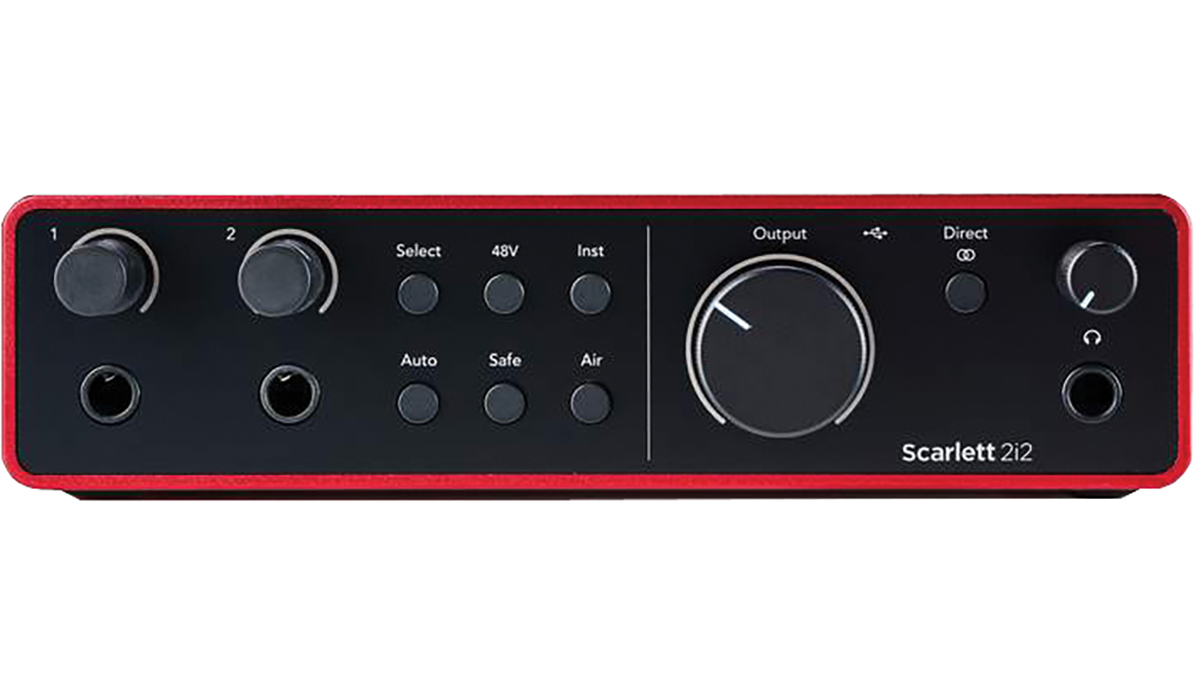
Scarlett 2i2 4th Gen
- Sample rate and resolution: up to 24-bit / 192kHz
- Inputs connections: 2 jack, 2 XLR
- Output connections: 2 jack
- Power: USB with additional USB-C power inputs
- Size: 79(w) x 46(h) x 116(d)
- Weight: Solo: 586g
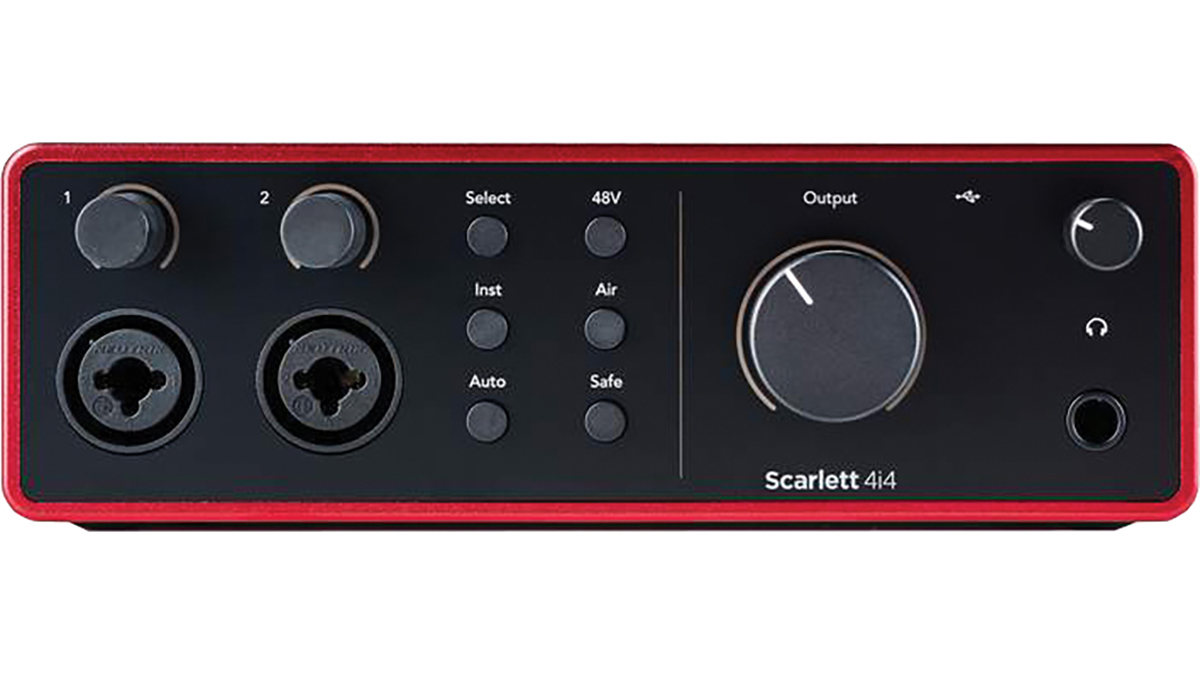
Scarlett 4i4 4th Gen
- Sample rate and resolution: up to 24-bit / 192kHz
- Inputs connections: 2 XLR/jack combi, 2 jack
- Output connections: 4 jack
- Power: USB with additional USB-C power inputs
- Size: 179(w) x 60(h) x 129(d)
- Weight: 814g
- CONTACT: Focusrite
Jon is a London based platinum award winning mixer, producer, composer and club remixer with a diverse CV that spans dance, pop, rock and music for media. He’s also a long term contributor to MusicRadar's music technology tutorials and reviews. Whether working alone or collaborating he usually handles final mixdowns, so you’ll also find MusicRadar peppered with his handy mixing tips.
